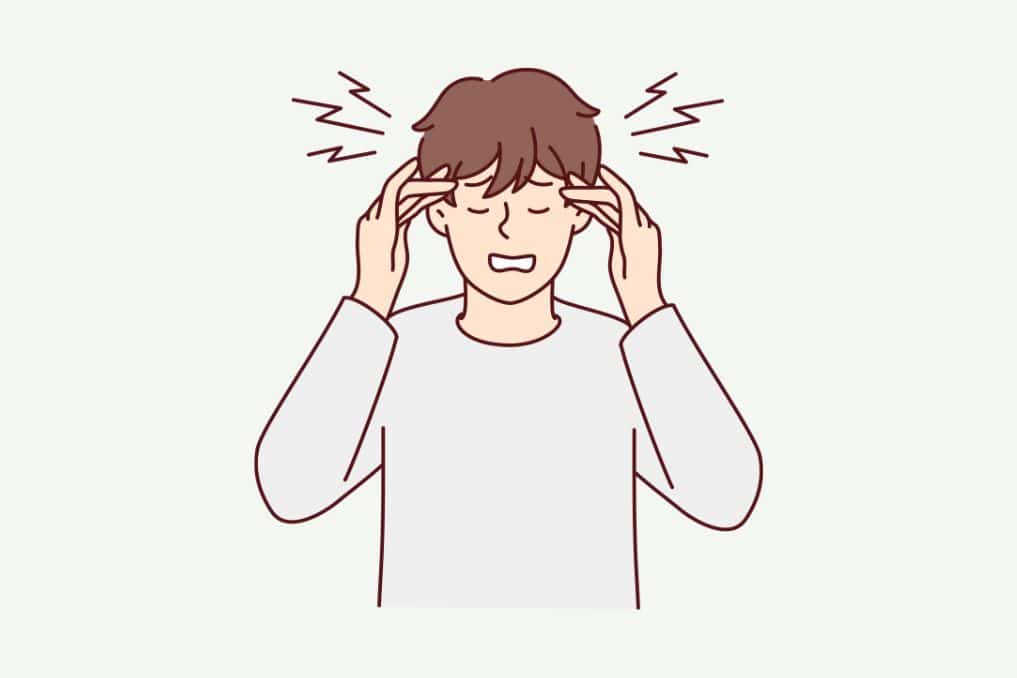
Did you know that stress and anxiety can affect your eyes and general health? If you are facing physical or mental stress, it can affect your wellbeing. Changes in your eyes can signal problems such as blurred vision, diabetes, stress, allergies, lack of nutrients and more. This is why it is important to listen to your body, especially if you are getting symptoms, as it could be telling you something very important about your health.
What is Stress?
Stress can be defined as “a state of worry or mental tension caused by a difficult situation.”
When you are stressed, your body releases stress hormones such as adrenaline. Your ‘fight or flight’ mechanisms will kick into play at this point, until you have passed the stressful situation. The issue is that the symptoms can affect numerous organs and parts of the body, and over time, if it doesn’t go away, there can be severe problems and long-term effects.
What are Some Causes of Stress?
Some causes of stress can include financial obligations, death of a loved one, job loss, traumatic events, problems at work, emotional well-being, relationship issues and more. Each person handles stress in a different way, so it is not always obvious when a person is stressed about something, but they could also manage it in their own unique way.
Symptoms
Stress-related vision problems include:
- Blurry vision
- Eye pressure
- Head pressure/headaches
- Light sensitivity
- Tunnel vision
- Rising blood pressure
3 Types of Stress
Acute Stress: Short-term
Episodic Acute Stress: When acute stress happens on a regular basis
Chronic Stress: Occurring majority of the time (This stage is when it can become severe)
What is Anxiety?
Anxiety can be defined as ‘intense, excessive, and persistent worry and fear about everyday situations.”
Symptoms:
- Fast heart rate
- Overthinking
- Rapid breathing
- Sweating
- Feeling tired
What are Some Causes of Anxiety?
Anxiety can be caused by a variety of circumstances. Whether it is a build up of stress, physical or mental health problems or trauma. Anxiety can occur from childhood and lead into adulthood, or you can experience it later in life.
How to Manage Stress and Anxiety
If you find that your stress and anxiety levels hit a point where you are noticing more physical and mental health issues, it may be time to try some techniques to help manage it. This could involve techniques such as mindfulness, meditation, yoga and slow breathing exercises.
Diet always plays a part in our general health, which means that you should try to avoid foods and drinks that will increase your heart rate. Alcohol, coffee and fatty foods tend to increase stress and anxiety.
If you find that you will be more at ease if you visit a professional, book an appointment with an eye doctor and a doctor to receive any advise that you require. Also, by visiting a professional, they will be able to diagnose any further health issues or eye problems in its early stages.
Eye Conditions Caused by Stress and Anxiety
Even though the whole body is affected by stress and anxiety, the stress-related vision problems can be the most detrimental to your health. If you have the following visual symptoms, please book an eye appointment with your optometrist.
Eye Strain
Pain in the eyes which can make it difficult to concentrate. You may experience headaches from this as well as discomfort.
High Eye Pressure
Build up of blood flow behind your eyes and it is causing pressure. There is cause of concern here as you can have vision loss if your eye pressure is too high.
Blurred Vision
May be difficult (and dangerous!) to drive and do normal day-to-day activities.
Light Sensitivity
Pain from bright lights nd being outdoors. Causes pain, squinting and headaches. Also can cause dizziness.
Optic Neuropathy
Can be caused by inflammation of the nerve due to infection or disease. It is unlikely you can get it from stress but if you are stressed, losing sleep, and your health is declining, you are more likely to get an infection. Optic neuropathy can lead to the progression of vision loss.
Effects of Stress and Anxiety – When to Seek Help
If you find that your stress levels and anxiety symptoms have reached the levels mentioned below. It is strongly recommended you visit a doctor and optometrist.
- Feeling overwhelmed or unable to cope
- Panic attacks
- Blood pressure rising
- Stomach/gut issues/reflux
- Fertility problems
- Muscle pain
- Acne
It is difficult to avoid mental stress and physical stress throughout life. The most important thing you can do is acknowledge your symptoms and try to find a balance to reduce your symptoms and get back on track.
